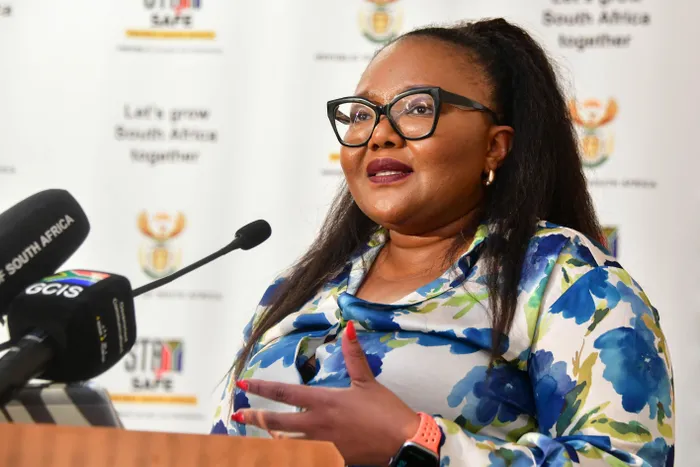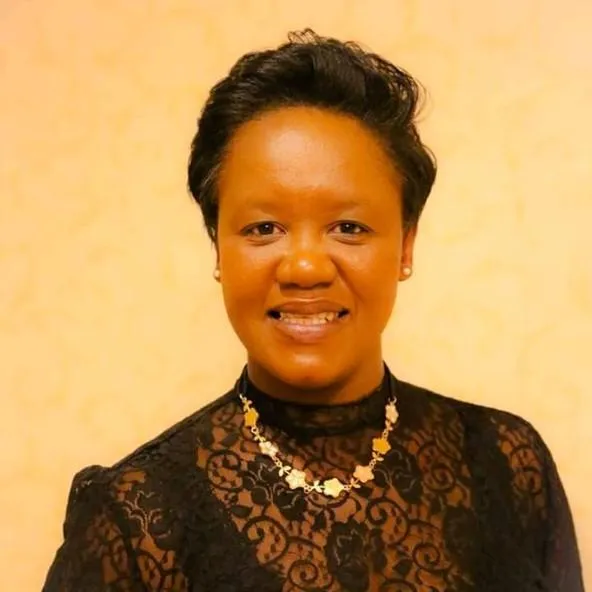Battle for SA's education future: BELA Act divides stakeholders as deadline approaches

Basic Education Minister Siviwe Gwarube
Image: GCIS
As the closing date for public comments on the controversial Basic Education Laws Amendment (BELA) Act approaches, reactions from education stakeholders remain mixed, with some raising concerns about implementation and equity, while others welcome the legislation as a step toward accountability and fairness in South Africa’s public schools.
The Chairperson of the Portfolio Committee on Basic Education, Joy Maimela, warned that some of the regulations “might undermine the legislation’s intention.”
“Firstly, the committee has previously called for all the regulations to be gazetted in one go and not in a piecemeal fashion. We want the public to engage on a comprehensive document that will give expression to the intentions of the Act.
“While we understand the intent may be to avoid technical delays, this fragmented rollout undermines the coherence, urgency and integrity of the BELA implementation process. South Africa’s children cannot afford to wait for bureaucratic caution or political compromise,” said Maimela.
She added: “Furthermore, it is noted that some of the terms used in the regulations seem to deviate from the Act. It gives the impression that the regulations aim to undermine the intention of the Act.”
Maimela warned that this could contradict Parliament’s goal of transforming South Africa’s education system and might instead perpetuate the exclusion of vulnerable learners.
“The regulations on admissions, for example, refer to taking into account the demographics and education needs of the ‘surrounding community’. In the Bela Act the responsibility for admission policy lies with the head of department (HOD) and is based on the ‘broader Education Districts’. This potentially reinforce local demographic homogeneity, contrary to the type of inclusivity the Act intended.”
She further noted: “This, once again, points to keeping previously disadvantaged learners out via location. Historically it has been linked to exclusion. It seems these regulations are attempting to re-write the Bela Act and re-introduce matters that were unsuccessfully contested in the Bela Act legislative drafting process.”

Andre De Bruyn from EUSA
Image: Supplied
“The committee will continue to closely monitor this process and engage robustly with the Minister on the gazetted regulations, which seem to deviate from the national objective,” emphasised Maimela.
Gwarube said the regulations provide “an important opportunity for education stakeholders and the broader South African public to actively shape the future of basic education in our country.”
“These regulations are instruments that will affect how schools are governed and managed, how children are admitted, and how our values as a society are reflected in our education system. I call on all South Africans, including parents, teachers, school governing bodies, civil society, education experts and community members to participate meaningfully in this public comment process. Your voice matters. Let it be heard in shaping the policies and regulations that govern the education of your children,” said Gwarube.
The Educators and Allied Workers Union, Western Cape (EUSA) has raised concerns about proposed learner–teacher ratios, warning they will remain “a pipe dream” unless consistently enforced across all schools. André De Bruyn, Chairperson of EUSA, said:
“Post level 1 educators are bearing the brunt, often with very little or no administrative time, together with overcrowded classes. Poorer schools face relentless pressure to admit more learners, resulting in severe overcrowding, while affluent schools seldom face the same demands. Wealthier schools have the resources to challenge the department in court over forced admissions.”
He added: “If budget constraints are blamed, who will be appointing the teachers and building the classrooms to make a 1:40 ratio possible? The Department of Basic Education ultimately pursues its predetermined agenda regardless of community engagement. More and more demands are being put on teachers, especially in poorer schools, while the vision of 1:40 and 1:30, if not enforced in all schools, will remain an illusion.”
The South African Democratic Teachers’ Union (SADTU) expressed strong criticism of the regulations and the Minister’s approach. SADTU highlighted that the Minister issued implementation guidelines earlier this year, which the union rejected as unlawful, arguing that only formal regulations have legal standing.

Vanessa Le Roux from PEESA
Image: Supplied
“The issuing of guidelines appears to be an attempt to sow confusion, delay the implementation of the Act and advance the DA’s political agenda against the full implementation of Sections 4 and 5,” said SADTU in a statement.
The union emphasised its commitment to safeguarding learners’ constitutional right to quality education, warning that any provisions undermining these rights would be opposed. SADTU confirmed it is studying the draft regulations and will submit formal comments by the 5 September 2025 deadline.
Vanessa Le Roux of Parents for Equal Education South Africa (PEESA) welcomed the BELA Bill, seeing it as a mechanism to enforce equity and accountability in public schools.
“As an organisation there is mixed feelings, especially because we reside in the Western Cape, over the years we saw the inequalities growing to the point where we feared that education will only be for those who can afford it.
“On the other hand we don't want to take away the power from the SGB/community, who is the real authority when it comes to schools, however what we saw over the years is that governing bodies, in especially township schools are not equipped with enough knowledge to govern the school, and ultimately the principal runs that school to the point where they are involved with finances of the school.”
Le Roux said out of all the 9 Provinces in public participation, the Western Cape was the only province who took real issue with the Bela Bill and said it came down to a case of accountability.
“For far too long these former model C schools have gotten away with the violation of the rights to basic education for all learners, and they were protected by the education department.
“So whether they call it centralisation of power, we from poor communities, call it a step in the right direction. The same rules, policies, and laws should be applied. It is a matter of addressing inequalities, discrimination, and racism in public schools. We welcome the implementation of the Bela Bill with much hope, and open arms.”
tracy-lynn.ruiters@inl.co.za